Apply now to join our next cohort of Community Science Fellows and Community Leads!
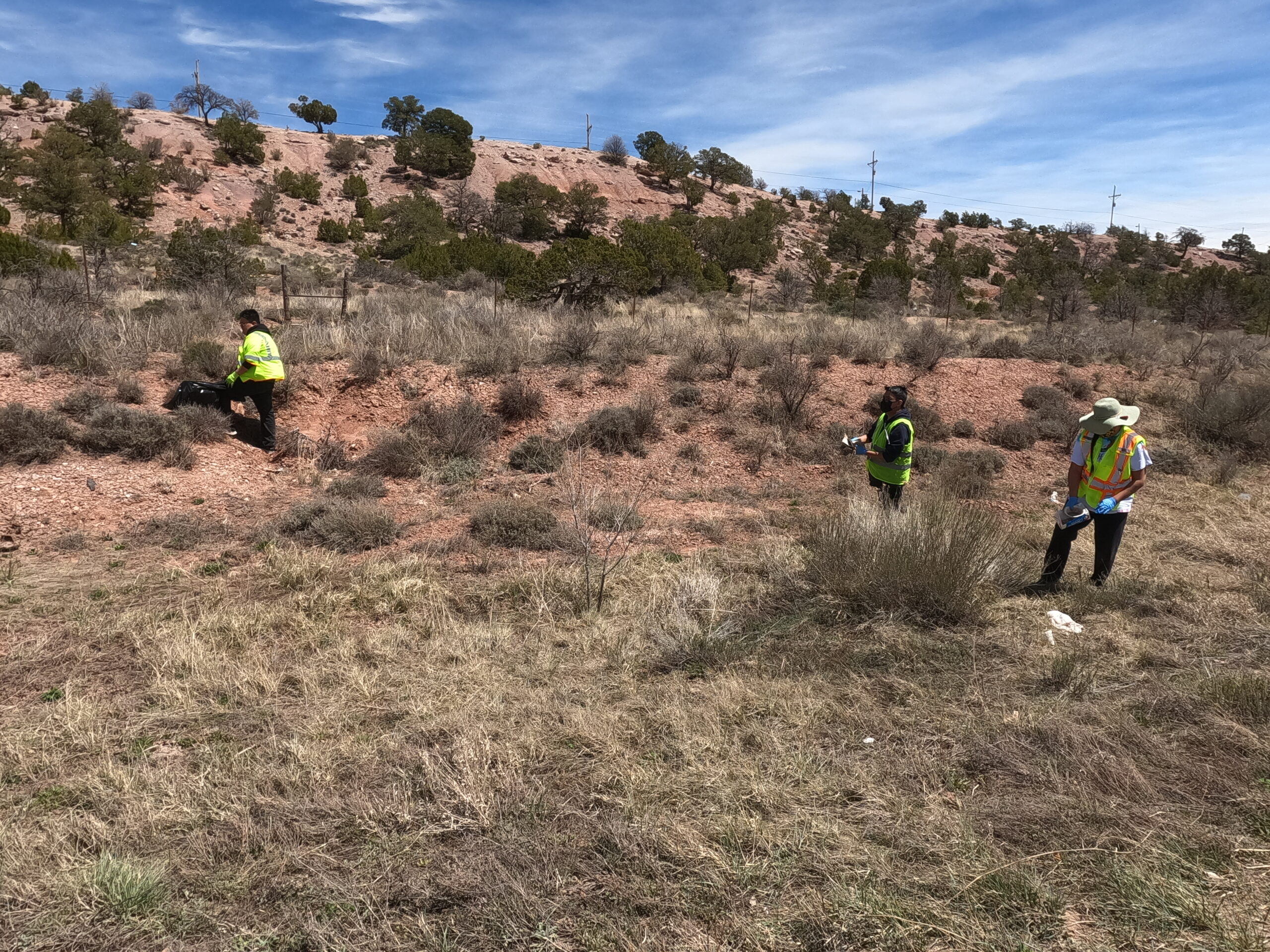
Volunteers at the Earth Day community clean-up near Window Rock, AZ. Photo courtesy of Alexandir Nakai
With only 3 waste management companies to provide services to the communities of the Navajo Nation, households travel up to 60 miles to properly dispose of their waste at border towns. For those without transportation, those who live off grid, or those in remote areas, dumping waste is often a more accessible option. As a result, illegal dumpsites have been used for generations. However, there is a lack of information on where they are located and the harmful effects the waste can have on the environment. Therefore, HUBitual Learning and Outreach, a local non-profit, aims to: connect with scientists to provide tangible evidence of the dumping sites using GIS tools, develop a protocol to assess the sites and remove waste, and engage community members to help solve the issue through community-led clean up events. The overall goal is to use these tools to promote environmental stewardship in and around the Fort Defiance community.
Fort Defiance and Window Rock are communities within the Navajo Nation, within Apache County, AZ. The Navajo Nation is organized into chapters, and the Fort Defiance Chapter House is the local governing entity. Geographically, the area consists of plateaus, mountain ranges, and desert washes that are characteristic of the Navajo Nation. The population of the region is 6,600 people, with residents living in dispersed rural communities. Many people in Fort Defiance live in poverty, with some living in makeshift and asbestos-filled homes. 90% of the population in the area are Diné.
This project is led by HUBitual Learning & Outreach, a local non-profit dedicated to mutual aid for those within marginalized communities, environmental stewardship through local revitalization projects, and creating opportunities where harmony and individuality can be celebrated through the arts. This particular project is focused on environmental stewardship and waste management. HUB is working closely with the Chapter House and local residents to prioritize sites and maximize the impact of the project.
There are two main components to the project: GIS mapping of illegal dump sites and development of a protocol for waste removal and assessment. These activities will provide both a large-scale overview of the issue and actionable steps for the community to address the issue. Successful completion of the project will provide the community with knowledge and resources to understand the impact of current waste management practices and to manage waste more sustainably in the future.
Summer 2023: Recruit and connect with scientist, monthly community clean-ups
Fall-Winter 2023: Data collection and analysis – remote sensing of dump sites, field data collection from Rio Puerco Wash and Blue Canyon
Spring-Summer 2024: Publish interactive map, present results to Chapter House, plan next steps and follow-up activities
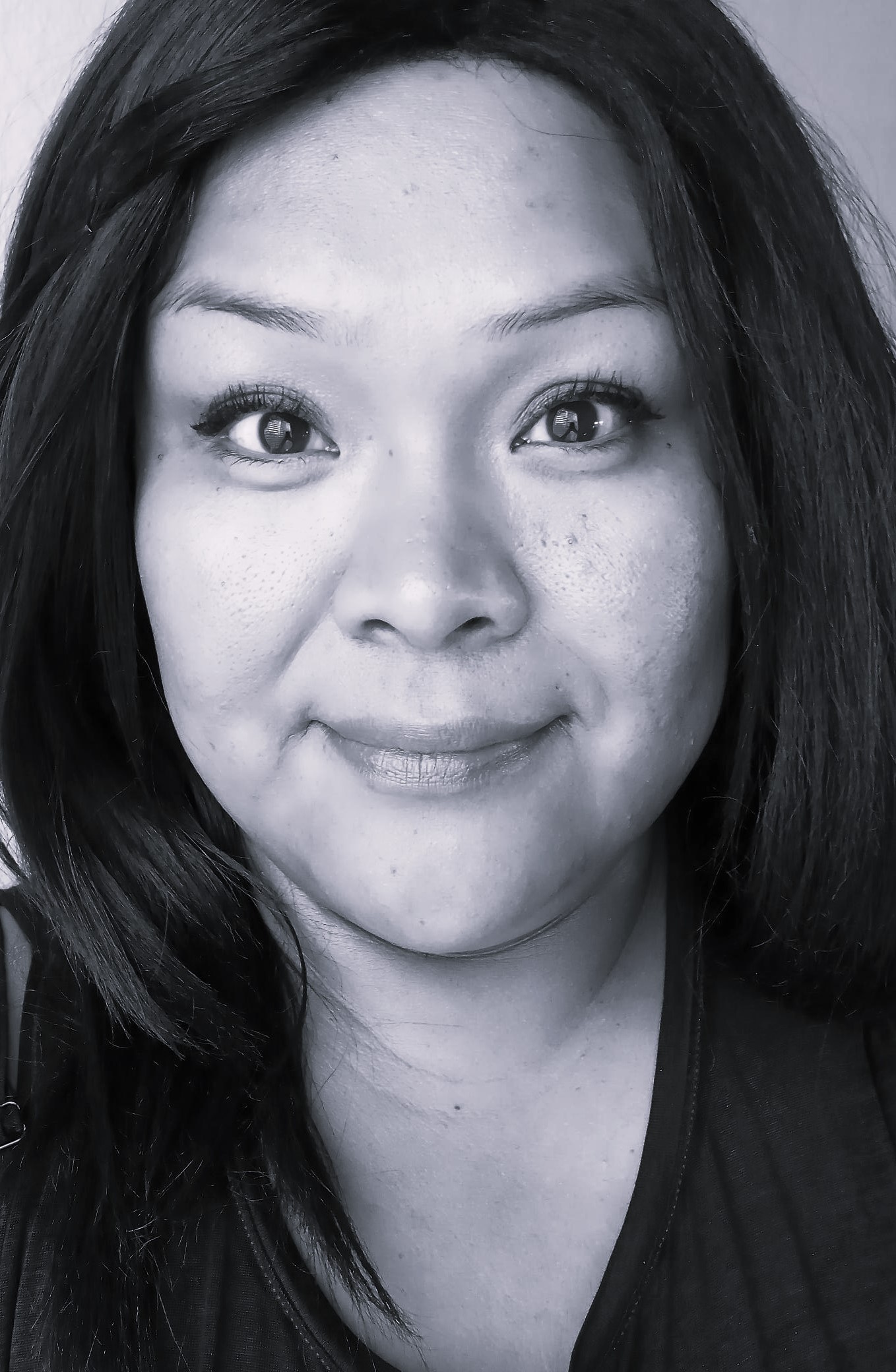
Dimitra McCabe – Dimitra is the founder and executive director of HUBitual Learning & Outreach. With HUB, Dimitra organizes community events, manages projects, and builds connections with local government, volunteers, and like-minded organizations. She has extensive non-profit experience and is motivated to promote environmental stewardship and economic revitalization through programs that engage the community. In her free time, Dimitra enjoys birding, tree tending, listening to podcasts, and spending time with family and pets.
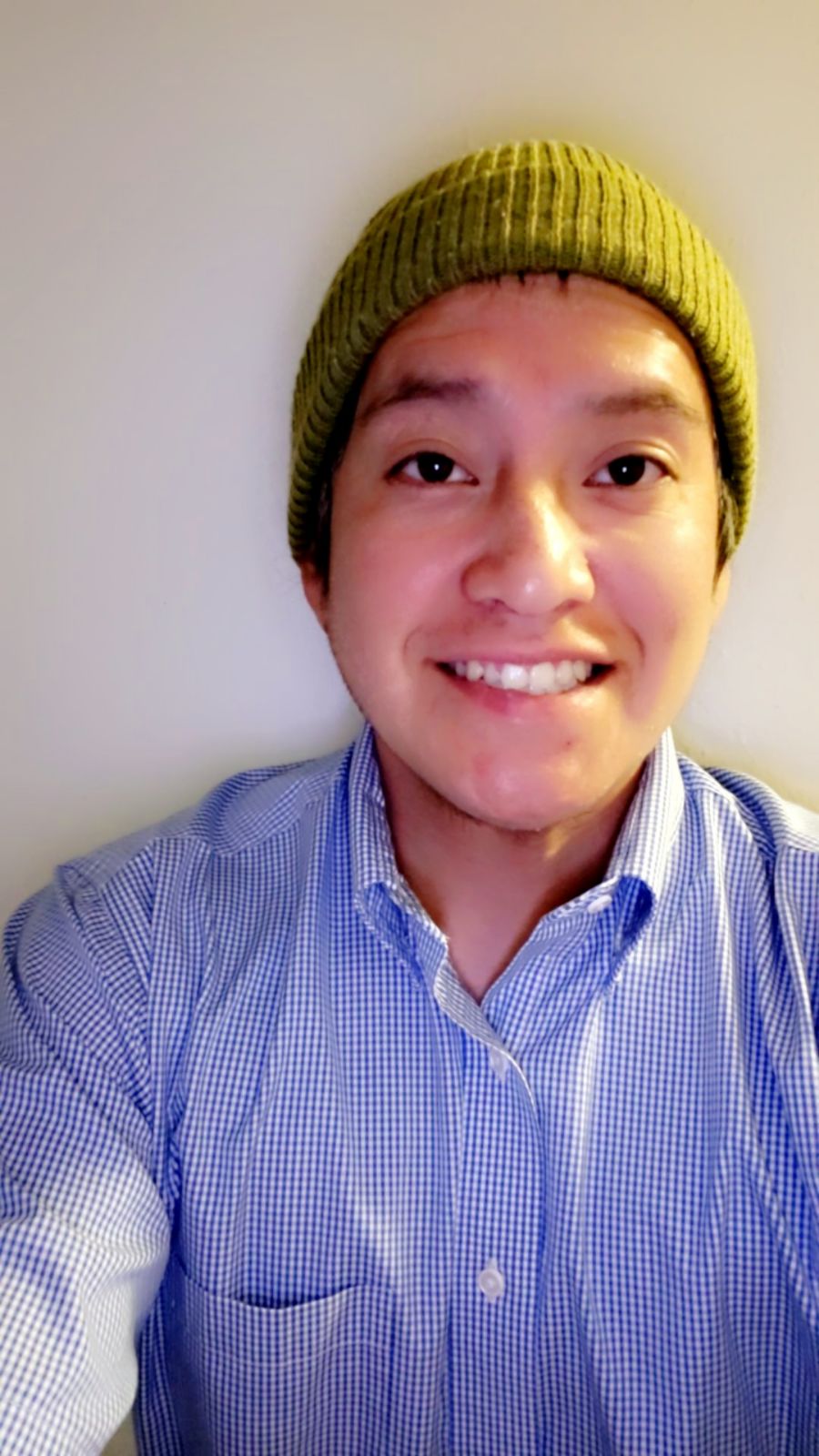
Alexandir Nakai, HUBLO- Alexandir is the Director of Development Operations at HUBitual Learning & Outreach. He has extensive non-profit experience developing and leading youth programming. With HUB, Alex leads youth programming and assists with the planning and execution of other projects. In his free time, Alex enjoys skateboarding, mountain biking, and anything in the outdoors.
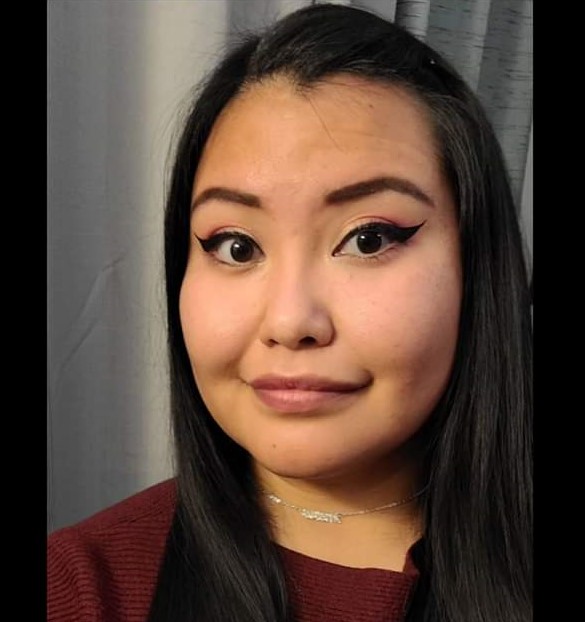
Monique Nakai, HUBLO- Monique Nakai – Monique is the Program Director at HUBitual Learning & Outreach. Monique helps to create and lead events, as well as collect data to evaluate and improve programming. She has a background in music and encourages the community to realize self-expression through the arts. In her free time, Monique enjoys hiking, playing music, and spending time with her cat Pepper.
Youth Interns – HUBitual Learning & Outreach has several youth interns who assist with programs, including co-organizing community clean ups.
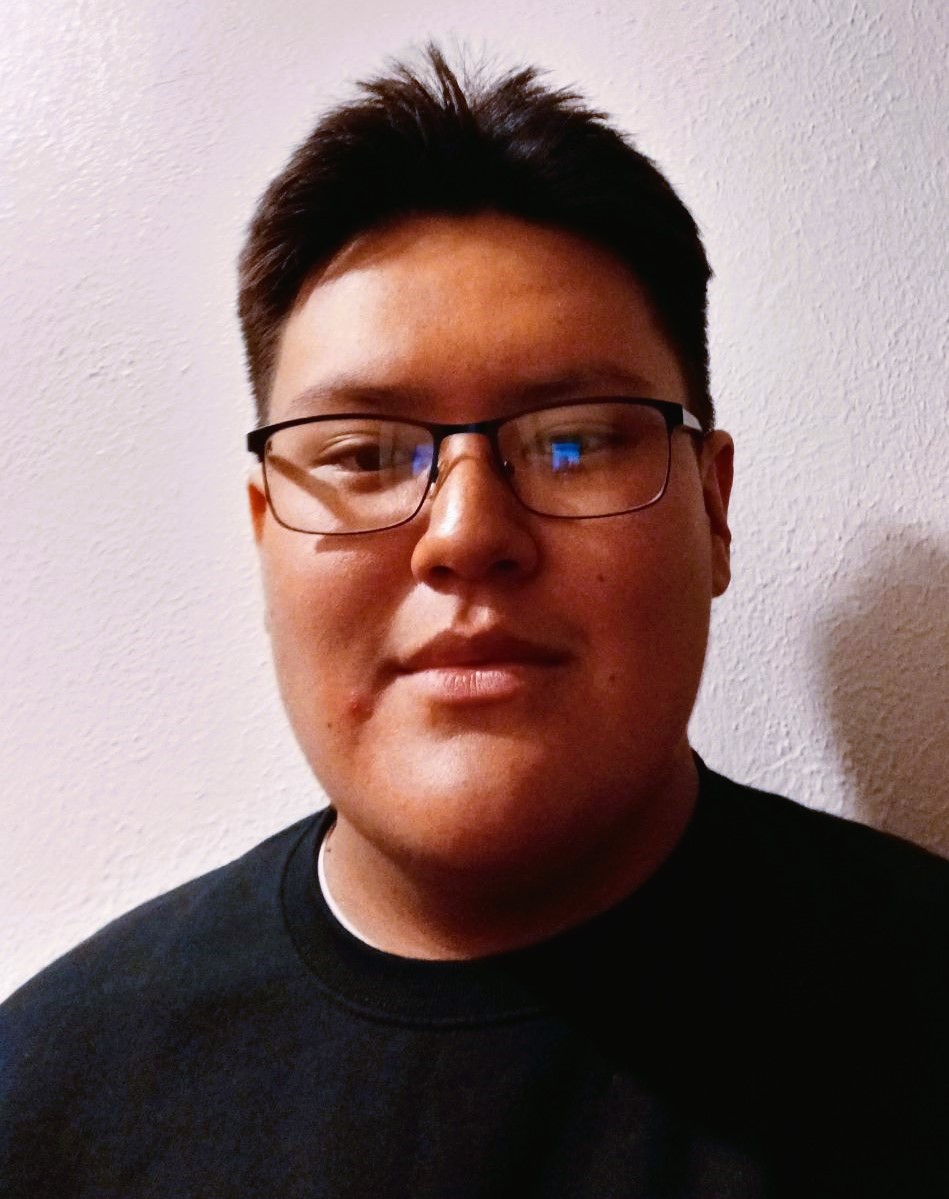
Miles Nakai
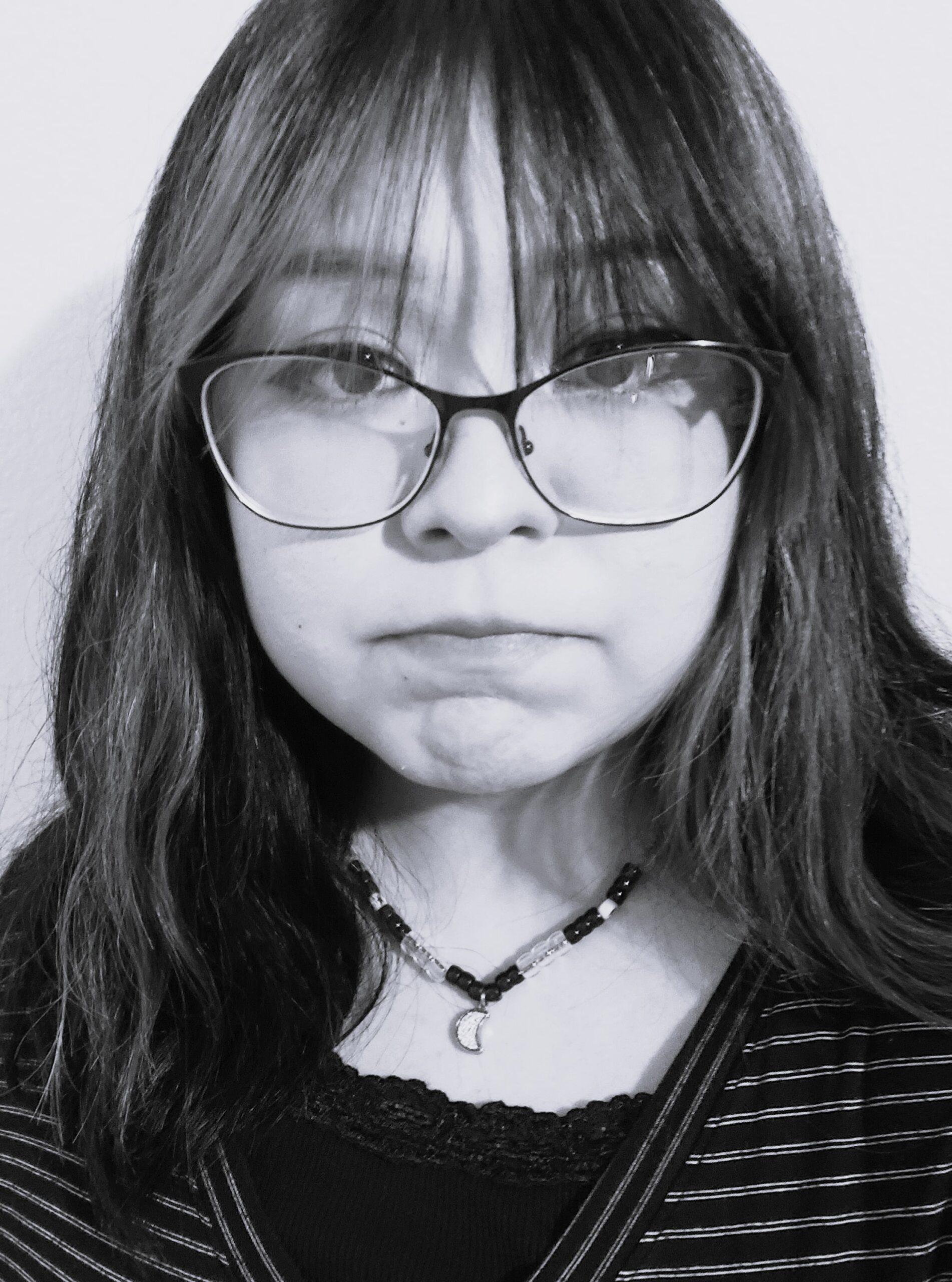
Skylar McCabe
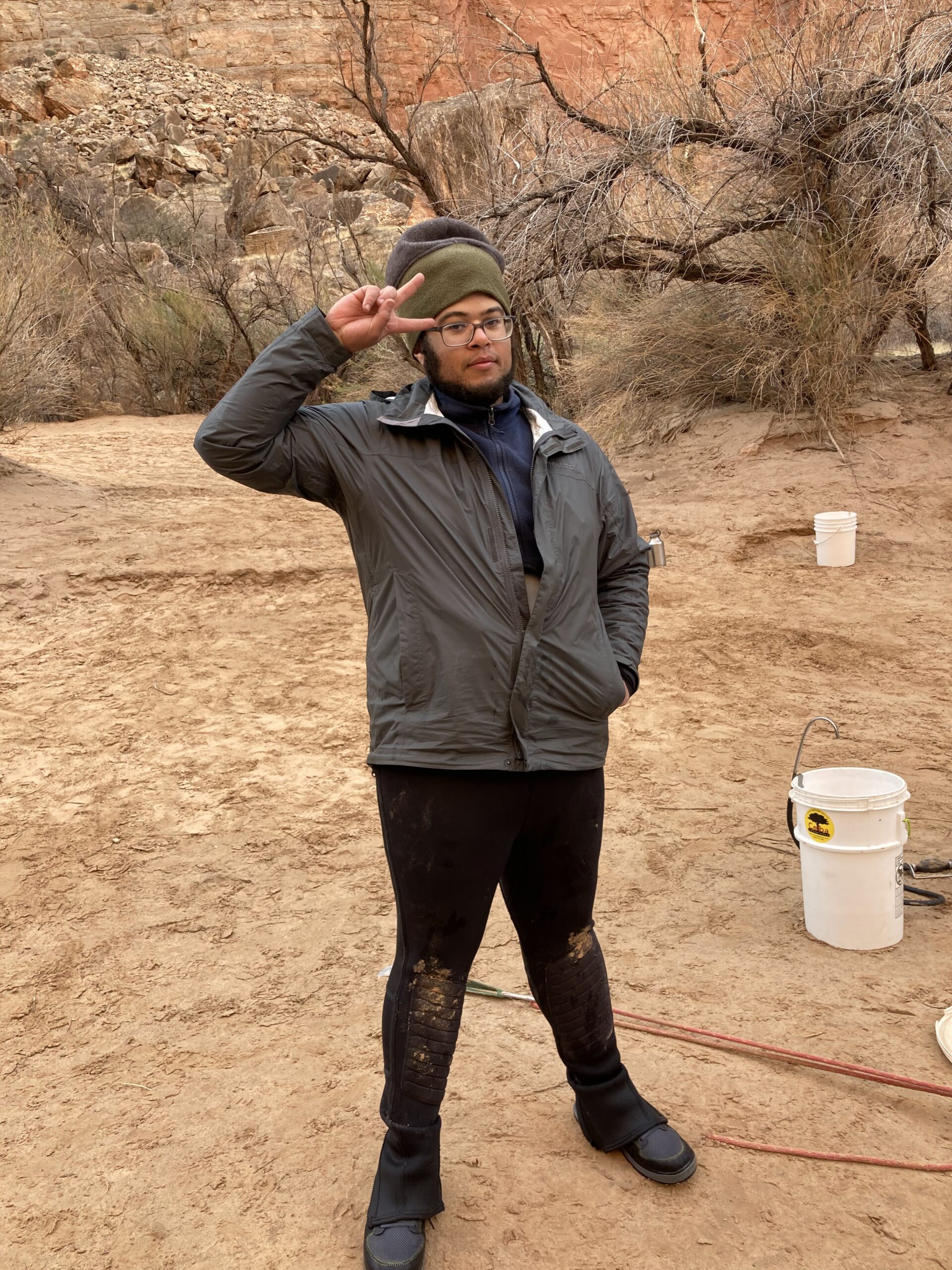
Jabari Jones (he/him) is an avid retro video game collector, cat owner, musician (though not playing as often as he would like), and ultimate frisbee coach. He is also a PhD candidate at the University of Minnesota Twin Cities and the Diversity Pre–Doctoral Teaching Fellowing at the University of Minnesota Morris. His research interests are at the intersection of humans and geomorphology, as he works to understand how direct and indirect human actions influence riverine processes. He is excited about interdisciplinary collaboration, and has worked with ecologists, engineers, and social scientists to unravel the complexity of river systems. He is also an advocate for community science, and has co–led an effort to support environmental organizations in the Twin Cities by sharing resources and bringing them into conversation with the University of Minnesota.
This project is looking for two scientists. One scientist will utilize GIS tools to build a user-friendly interactive map of illegal dump sites based on aerial imagery and field GPS data. The second scientist will help to develop a protocol for waste removal and environmental assessment of dump sites.
The project is open to student involvement.
Scientist 1:
Scientist 2:
Thriving Earth Exchange asks all scientific partners to work with the community to help define a project with concrete local impact to which they can contribute as pro-bono volunteers and collaborators. This work can also position the scientists and communities to seek additional funding, together, for the next stage.
Anthropocene Alliance – Anthropocene Alliance is a non-profit organization dedicated to supporting frontline environmental justice communities. A2 provides organizational support, scientific and technical guidance, and better access to foundation and government funding.
Fort Defiance Chapter House – The Chapter House is the local governing body in Fort Defiance, AZ. The Fort Defiance Chapter House organizes a number of local services and is working with HUBitual Learning & Outreach to identify sites.
(c) 2024 Thriving Earth Exchange